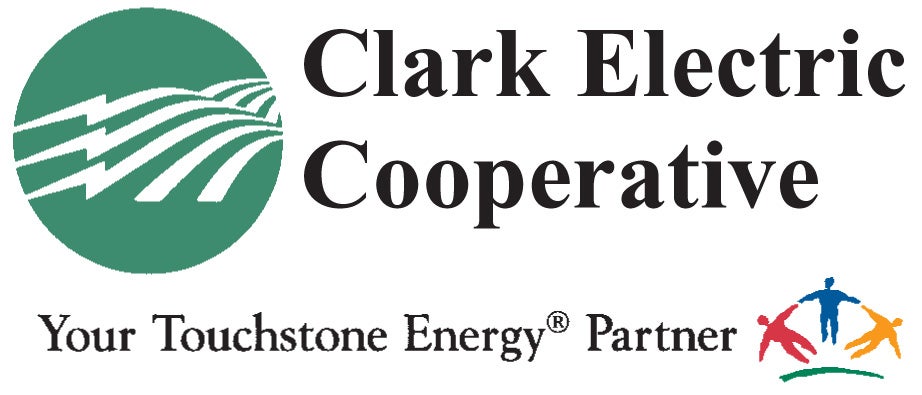Capital Credits
Questions? Contact Clark Electric
All business organizations need capital to operate, which is usually supplied by a combination of equity and debt. An electric cooperative generally cannot issue stock and pay dividends to the general public. However, it still needs to maintain an adequate level of equity to ensure financial health and stability. This is accomplished through what is termed " capital credits".
What are Capital Credits?
Clark Electric Cooperative is a not-for-profit service oriented electric utility that is owned by the members we serve. Since we operate on a not-for-profit basis, we technically do not earn profits. Instead, any revenues over and above the cost of doing business are considered “margins”. These margins become part of the capital structure of the Cooperative and are used to help fund operating activities at the Cooperative, with the intent that this capital will be repaid to you in later years. Simply stated, capital credits reflect each member’s ownership in the Cooperative.
How Are Capital Credits Calculated?
The amount of capital credits you earn in a given year is based upon the amount of capital you contribute to the Cooperative through payment of your monthly electric bills and the amount of operating margins realized by the Cooperative. The more electricity you buy, in relation to operating margins realized, the greater your share of capital credits will be.
What's the Difference Between Allocated and Retired Capital Credits?
Allocated capital credits appear as an entry on the permanent financial records of the Cooperative and reflect your equity or ownership in Clark Electric Cooperative. When capital credits are retired, a check is issued to you and your equity in the Cooperative is reduced. The Board of Directors determine under rules of general application, the method, basis, priority, and order of retirement for all capital credit retirements. Currently, checks are generally issued 20 years after the year in which the margins were earned.
How Often Will I Receive an Allocation Notice?
You should receive an allocation notice annually after the finances for the previous year have been audited and the books of the Cooperative closed.
What Do I Have To Do To Start Accumulating Capital Credits?
Capital credits are calculated by Clark Electric Cooperative for everyone who purchased electricity during a year in which the cooperative earned margins. No special action is required to start a capital credit account. Your membership in Clark Electric Cooperative activates your capital credit account.
Do I Have To Be A Customer for an Entire Year To Earn Capital Credits?
No. Capital credits are calculated based upon a member’s monthly bill. If you are billed for service for even one month, you will accumulate some capital credits if Clark Electric Cooperative earned margins that year.
Can I Use the Capital Credits I Have Allocated to Pay My Electric Bill?
No. Allocated capital credits may not be used to pay current bills. Capital credits have no cash value until the Board of Directors calls for the retirement of a particular year’s allocated capital credits. In other words, your electric bill is due now, whereas you may not be entitled to be paid your capital credits for many years.
What Happens to the Capital Credits of a Member Who Dies?
The capital credits of a deceased member may be paid without waiting for a general retirement, however, these estate payments are not automatic. A representative of the estate must request the capital credits by submitting an application for early retirement and a copy of the death certificate. Any estate retirement paid in cash will be at a reduced present day value to the capital credits earned. Other restrictions may apply. Contact our office for more information.
Will I Receive a Capital Credit Check Every Year?
Not necessarily. The Board of Directors must authorize a retirement before you receive a check. When considering a retirement, the Board analyzes the financial health of the Cooperative and will not authorize a retirement if Clark Electric Cooperative cannot afford it. In addition, the Board of Directors determine under rules of general application the method, basis, priority, and order of retirement for all capital credit retirements. Currently, checks are generally issued 20 years after the year in which the margins were earned.
What Happens To My Capital Credits When I Leave the Clark Electric Cooperative Service Area?
Your capital credits remain on the books in your name and member number until they are retired. Because payments are made years after they have been allocated, you should ensure that Clark Electric Cooperative always has your current mailing address.
